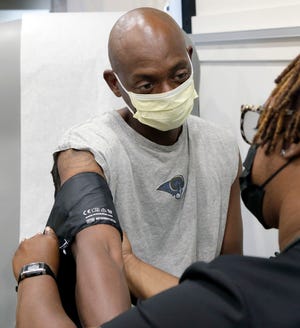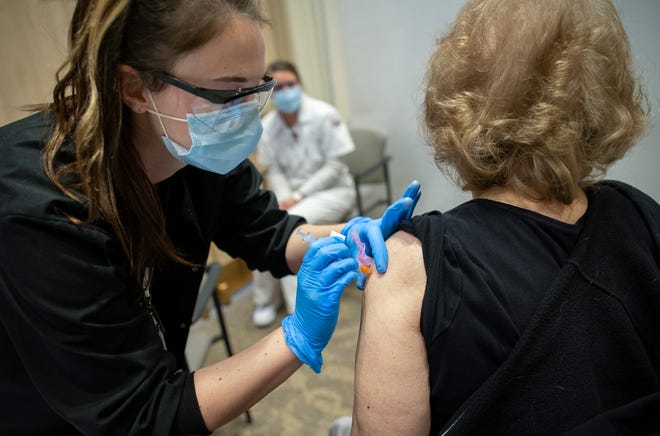
Lawson Wulsin, M.D., is a professor of psychiatry and family medicine at the University of Cincinnati.
It has always seemed strange to me that in 1973, the U.S. Supreme Court in Roe v. Wade granted a woman’s right to an abortion based on the Constitution’s Fourth Amendment, which protects the right to privacy.
Until recently, this decision had withstood multiple challenges over nearly 50 years, so who was I to question that strategy?
Now that the Supreme Court has declared that in the U.S., women no longer have a constitutional right to abortions, I guess it’s time to ask the obvious: Why was the right to abortion not based on the right to health care?
More:Ohio Politics Explained podcast: The impact of overturning Roe vs. Wade

More:How to submit guest opinion columns to the Columbus Dispatch
Every first-year law student probably knows the answer, but it’s news to me that we have a Constitution that protects the right to vote, the right to free travel, the right to bear arms, the right to privacy, and the right to education, among other rights, but not the right to health care. What kind of democracy ignores the right to health care?
We have managed to get by without guaranteeing the right of access to health care through a series of laws that expanded health care services, such as Medicare, Medicaid, and the Affordable Care Act.
But the absence of a constitutional protection of the right to health care leaves it to the state legislatures to decide how each state will provide these services.
The folly of this system was never more apparent than in the early phases of our country trying to figure out over many months how to face the COVID pandemic with 50 different approaches, while countries with national health care systems jumped into action much earlier.
More:Letter: COVID-19 demonstrates need for universal health care
We paid the price with our enormous COVID death toll. Now we will revisit this chaos as the 50 states try to figure out how each will navigate the regional politics of abortion.
In 2017 and again in 2019, Rep. Betty McCollom (D-Minn.) proposed amending the U.S. Constitution with these words:
“Health care, including care to prevent and treat illness, is the right of the people and necessary to ensure the strength of the Nation. The Congress shall have power to enforce and implement this article by appropriate legislation.”

In most democracies around the world, this type of declaration carries no more partisan division than declarations about transportation or infrastructure. Health care, like education and transportation and voting, is simply one of the essential components of a democracy. No incendiary debate about it.
So, why are we in the U.S. so backward and divided in this respect? What kind of democracy ignores the right to health care?
We are the only developed country in the world where health care has been hijacked by the business of health care. We are peculiar in the way that, for most of us, our employers control our access to health care. No wonder politics has controlled health in the U.S.
More:Growing number of Ohio companies support travel costs for abortions

COVID and the reversal of Roe convince me we need a Constitution that protects the right of every citizen to health care. It seems like a long shot that two-thirds of the Senate would ever agree to anything and that three-fourths of the states would ever ratify any amendment.
But just 20 years ago, it was a long shot to imagine gay marriage as a protected right throughout this country.
If gay marriage can be protected, why not health care? Then the protection of women’s health care will be a constitutional right.
Dr. Lawson Wulsin is a professor of psychiatry and family medicine at the University of Cincinnati.








